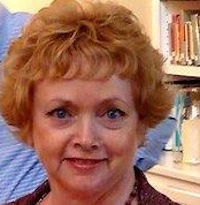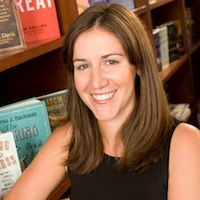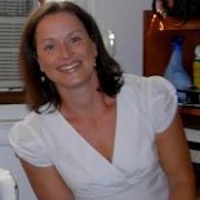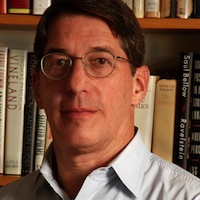What US Editors Want 2013
12 Jan 2013
Eleven US editors have kindly explained what sort of books they are looking for this year .
Amy Cherry, Vice President & Senior Editor, Norton
Having just handled the reissues of the 50th anniversaries of A Clockwork Orange and The Feminine Mystique , I’ve had a chance to contemplate how little we can guess about which books will make a mark. Both these works were bought because they were important and provocative, not because they had any guarantee of becoming the bestsellers they were. That, despite my penchant for quirky books, leads me to the kind of book submissions that I hope to see in the upcoming year. I’ve started acquiring works in history that go beyond the US, especially ones that take in a great swath of history, like last year’s Double Entry, which started in Mesopotamia and ended in the present. I also love biographies and memoirs that speak beyond the lives to be emblematic of the cultures and times in which they were lived. Narrative non-fiction that can balance the writer’s voice with a compelling subject is terrific when it works, but tricky to pull off. If I could find a couple of those this year, too, I’d be very happy.
Michaela Hamilton, Editor in Chief of Citadel Press and Executive Editor of Kensington
 What we’re looking for: At Kensington we specialize in commercial fiction and non-fiction directed to well-defined audiences. Our strongest area is women’s fiction, including romance of all kinds and mainstream novels. We also publish westerns, young adult books, memoirs, true crime, thrillers, mysteries, and fiction for the African American audience. My own areas of interest are thrillers, true crime, law enforcement, high-profile memoirs, and mysteries.
What we’re looking for: At Kensington we specialize in commercial fiction and non-fiction directed to well-defined audiences. Our strongest area is women’s fiction, including romance of all kinds and mainstream novels. We also publish westerns, young adult books, memoirs, true crime, thrillers, mysteries, and fiction for the African American audience. My own areas of interest are thrillers, true crime, law enforcement, high-profile memoirs, and mysteries.
Predictions: E-books will continue to gain fans. Publishers will take advantage of the e-format in creative ways, including publishing e-shorts to help build their authors’ visibility. Brand-name publishing will continue to dominate the marketplace. Publishers will seek to work with dynamic authors who can write 1 or 2 or more new books per year. Relationships between publishers and authors will become more cooperative as we work together to make books attractive against a sea of competition that includes tv, movies, DVD’s, and Internet sites.
Brent Howard, Senior Editor, New American Library
 Vivid, exciting narrative history will speak to me year after year, and 2013 is no exception. Working for a commercial imprint can make it a challenge to find projects with wide enough appeal, but I’m always looking for non-fiction by passionate, motivated authors with distinct voices, writing on popular subjects like World War II, the American West, American presidents and sports. I’m drawn to true stories that surprise me and stick with me, stories that make me realize that I never knew as much about a topic as I thought I did. If an author can tell me a true story about our world and hook me with the narrative drive of a novel, I’m sold. I’m also looking for smart, upscale thriller fiction—I’d love to find a writer with the talent of Olen Stienhauer.
Vivid, exciting narrative history will speak to me year after year, and 2013 is no exception. Working for a commercial imprint can make it a challenge to find projects with wide enough appeal, but I’m always looking for non-fiction by passionate, motivated authors with distinct voices, writing on popular subjects like World War II, the American West, American presidents and sports. I’m drawn to true stories that surprise me and stick with me, stories that make me realize that I never knew as much about a topic as I thought I did. If an author can tell me a true story about our world and hook me with the narrative drive of a novel, I’m sold. I’m also looking for smart, upscale thriller fiction—I’d love to find a writer with the talent of Olen Stienhauer.
Serena Jones, Editor, Times Books
 I’m most interested in strong narrative non-fiction, particularly in current events, cultural narrative, popular science, politics, adventure and true crime. I love working with journalists who’ve uncovered a little-known story or are on the trail of something big. I like passionate writers and love how much you learn along the way as an editor. My favorite acquisitions at Times Books include the upcoming reported memoir of journalist Kim Ghattas’ travels with Secretary Hillary Clinton, called The Secretary, and a Dominick Dunne, LA-noir-style true crime book by Matthew McGough tentatively titled The Lazarus Files. My dream acquisition would be something along the lines of In Cold Blood meets Into the Wild
I’m most interested in strong narrative non-fiction, particularly in current events, cultural narrative, popular science, politics, adventure and true crime. I love working with journalists who’ve uncovered a little-known story or are on the trail of something big. I like passionate writers and love how much you learn along the way as an editor. My favorite acquisitions at Times Books include the upcoming reported memoir of journalist Kim Ghattas’ travels with Secretary Hillary Clinton, called The Secretary, and a Dominick Dunne, LA-noir-style true crime book by Matthew McGough tentatively titled The Lazarus Files. My dream acquisition would be something along the lines of In Cold Blood meets Into the Wild
Rob Kirkpatrick, Senior Editor, Thomas Dunne Books, an imprint of St. Martin’s Press
I’d say 95% of my list is nonfiction, ranging from Biography/Memoir, Sports, Music, History, and Pop Culture. I had a very nice publishing story this year with The Wrecking Crew: The Inside Story of Rock ‘n’ Roll’s Best-Kept Secret, which saw multiple reprints in hardcover plus very strong digital sales. I’m always looking for opportunities like this - books that catch people surprise. Our biography The Peasant Prince: Thaddeus Kosciuszko and the Age of Revolution was another satisfying experience in that here was this dashing historical figure, an immigrant to our nation who became a hero in the American Revolution and has a score of landmarks in the U.S. named after him, yet very few people today had ever heard of the man. This title also surprised people and went back to press many times. I like the books that feel as if they should have been written before but, for some reason, had not. I also look for personal stories that will be compelling to a mainstream/pop readership, such as my forthcoming memoirs from tattoo icon-turned-fashion brand Ed Hardy, former MTV video jockey Kennedy, sports agent Leigh Steinberg, and radio personality Bryan Bishop. And baseball remains a favorite subject. I published the very first book on Bryce Harper last year, and he went on to win Rookie of the Year. I’m publishing a wonderful biography of Mark Fidrych this spring.
Alex Littlefield, Editor, Basic Books
Basic Books specializes in serious non-fiction, written by experts but aimed at a general audience; we’re always on the lookout for authors who can draw on ground-breaking research to provide a fresh perspective on a popular topic. I think this is a tremendously powerful and flexible model, and I’ve enjoyed testing its limits since joining Basic’s editorial team. I work primarily on our history list, and am particularly fascinated by subjects like food, music, military affairs, urban and environmental studies, agriculture, design, fashion, and technology. Some of my recent acquisitions are a history of Brazil during World War II (by historian Neill Lochery) and a natural history of the domestic pig (by historian and journalist Mark Essig). I confess to having slightly offbeat tastes, and love books that take a serious look at topics that are unusual, unsettling, or just plain weird; one of my favorite books remains Jennifer Toth’s The Mole People, a study of New York City’s underground homeless population in the early 1990s.
Luba Ostashevsky, Senior Editor , Palgrave Macmillan
 At Palgrave, we are looking for well written, compellingly argued non-fiction books that are braced by original research in the areas of history, science, current events, politics, and business. We all know the publishing industry is contracting but I think the crunch has forced authors and editors to adhere to higher standards. My search for books in 2013 will be for projects that are consequential: they might treat an overlooked historical event and tell a textured and vivid story, but to make it stick we’d want to know how that event impacts us today. An author might take on a problem that we deal with daily but approach it through the lens of new research or reinterpret it in a surprising way that sheds new light on our lives.
At Palgrave, we are looking for well written, compellingly argued non-fiction books that are braced by original research in the areas of history, science, current events, politics, and business. We all know the publishing industry is contracting but I think the crunch has forced authors and editors to adhere to higher standards. My search for books in 2013 will be for projects that are consequential: they might treat an overlooked historical event and tell a textured and vivid story, but to make it stick we’d want to know how that event impacts us today. An author might take on a problem that we deal with daily but approach it through the lens of new research or reinterpret it in a surprising way that sheds new light on our lives.
This past year, I’ve done well with underreported topics – did you know thorium is a safer alternative nuclear energy? Neither did most people, and Superfuel by Rick Martin received wide recognition. Did you know the author of the Norse myths was a twelfth century Icelandic chieftain as unruly as the gods he created? Song of the Vikings was an Indie pick (consortium of independent bookstores). I’ve had an author take a current events topic susceptible to reader fatigue—how to help underdeveloped nations –and make a hit out of it. In The Big Truck that Went By by Jonathan M. Katz finds out what happened to your generous donation in the wake of the tremendous earthquake in Haiti three years ago.
And of course to reach a broad swathe of the market, we are looking for an accessible narrative style that makes reading a pleasure.
I hope I haven’t raised the bar extraordinarily high. We all prefer raising glasses to a job well done instead, and some of the best books I’ve seen have had some imperfection in them that at the start you think will damn it but in the end saves it and gives it a human feel with which the reader connects.
Robert Pigeon, Executive Editor, Da Capo Press
My commissioning portfolio comprises history, military history and biography. Three of my recent frontlist books are just coming off a fantastic holiday season: Dog Company by Patrick K. O’Donnell, John Quincy Adams by Harlow Giles Unger, and the paperback edition of Pearl Harbor Christmas by Stanley Weintraub. Interestingly, these three titles fit my portfolio’s three categories. And I couldn’t help but note that, like all of our most successful books in these categories, these three recent hits shared the following characteristics: knowledgeable, engaged and committed authors; rich and textured storytelling; a distinctly human dimension; a recognizable and immediate resonance in today’s world; and a “handle” that can be expressed in one short, catchy phrase or sentence. So there; that’s my “formula” and I’m stickin’ to it.
Daniela Rapp, Editor, St. Martin’s Press
 I am looking for serious narrative non-fiction, particularly in history. What appeals to me most are those untold or overlooked stories that make for a vivid and informative read in the hands of a writer who can truly bring them to life. Even better if these stories are still culturally, politically, or socially relevant to us today. I’d also love to see books in the pop science genre, including those based in medicine, biology, and physics. Books that will teach me something I didn’t know already, and books that make me think. Ideally, the authors of these books are experts in their field with the capability to explain at times complex matters in a way that a trade audience can appreciate.
On the fiction side of things, I am desperately seeking high-concept stories, books that feature unreliable narrators, unexpected twists, or that surprise me in their plotting or set-up. I love mysteries, suspense, and thrillers, but am hoping for the ones that don’t just follow the usual patterns, the ones that are just slightly “out there.” That said, I absolutely need a plot (even in literary fiction), and one that moves forward relentlessly. Voice and character are important, but if nothing happens I generally lose interest.
I have always been a voracious reader, and the books I’d like to acquire, in any genre, really, are the ones that give me the same wonderful feeling of escape, learning, and emotional investment I experienced as a kid when I couldn’t put down the book I was devouring. If it will keep me reading into the wee hours of the morning, I’ll definitely want to publish it.
I am looking for serious narrative non-fiction, particularly in history. What appeals to me most are those untold or overlooked stories that make for a vivid and informative read in the hands of a writer who can truly bring them to life. Even better if these stories are still culturally, politically, or socially relevant to us today. I’d also love to see books in the pop science genre, including those based in medicine, biology, and physics. Books that will teach me something I didn’t know already, and books that make me think. Ideally, the authors of these books are experts in their field with the capability to explain at times complex matters in a way that a trade audience can appreciate.
On the fiction side of things, I am desperately seeking high-concept stories, books that feature unreliable narrators, unexpected twists, or that surprise me in their plotting or set-up. I love mysteries, suspense, and thrillers, but am hoping for the ones that don’t just follow the usual patterns, the ones that are just slightly “out there.” That said, I absolutely need a plot (even in literary fiction), and one that moves forward relentlessly. Voice and character are important, but if nothing happens I generally lose interest.
I have always been a voracious reader, and the books I’d like to acquire, in any genre, really, are the ones that give me the same wonderful feeling of escape, learning, and emotional investment I experienced as a kid when I couldn’t put down the book I was devouring. If it will keep me reading into the wee hours of the morning, I’ll definitely want to publish it.
Michael Szczerban, Editor, Simon & Schuster
 I’m looking for fiction for male readers, both literary and commercial, as well as non-fiction on technology, culture, science, food, business, and adventure. My background is in computer science, and I am particularly interested in the way our culture and commerce are being affected by technology. Like any reader, I love a good story and for a writer’s passion and curiosity to be palpable—so I look for work in which the pulse of narrative is strong, or fresh arguments that are punctuated by a lively voice and provocative or stirring insights. And for me, it never hurts to have a sense of humor.
I’m looking for fiction for male readers, both literary and commercial, as well as non-fiction on technology, culture, science, food, business, and adventure. My background is in computer science, and I am particularly interested in the way our culture and commerce are being affected by technology. Like any reader, I love a good story and for a writer’s passion and curiosity to be palpable—so I look for work in which the pulse of narrative is strong, or fresh arguments that are punctuated by a lively voice and provocative or stirring insights. And for me, it never hurts to have a sense of humor.
Bill Strachan, Editor at Large, HarperCollins
 The pat response is “good books that sell,” but since you never know what a book will sell until after publication, I’ll shorten that to “good books.” I acquire non-fiction, so I’m on the lookout for works by authors who are expert in their fields–this past year I was proud to publish Wine Grapes by Jancis Robinson, et al.– and those writers who can make nearly any subject interesting. In the latter group I tend to like narrative histories and works that bring a new perspective to a subject that may have been considered previously–no books on Lincoln, though. I also have a soft spot for works of natural history and place. Harper Collins is very invested in digital publishing, so I also need to acquire books in the genres that readers on electronic devices find attractive. For me, that’s strong narratives (again) and works on pop culture, especially music.
The pat response is “good books that sell,” but since you never know what a book will sell until after publication, I’ll shorten that to “good books.” I acquire non-fiction, so I’m on the lookout for works by authors who are expert in their fields–this past year I was proud to publish Wine Grapes by Jancis Robinson, et al.– and those writers who can make nearly any subject interesting. In the latter group I tend to like narrative histories and works that bring a new perspective to a subject that may have been considered previously–no books on Lincoln, though. I also have a soft spot for works of natural history and place. Harper Collins is very invested in digital publishing, so I also need to acquire books in the genres that readers on electronic devices find attractive. For me, that’s strong narratives (again) and works on pop culture, especially music.
